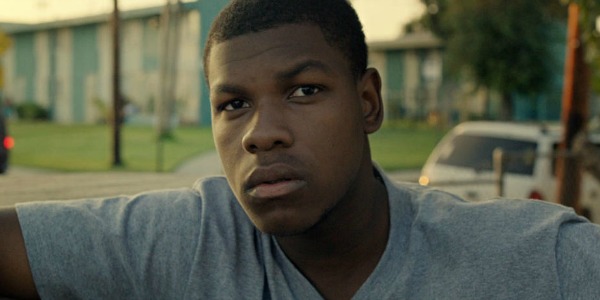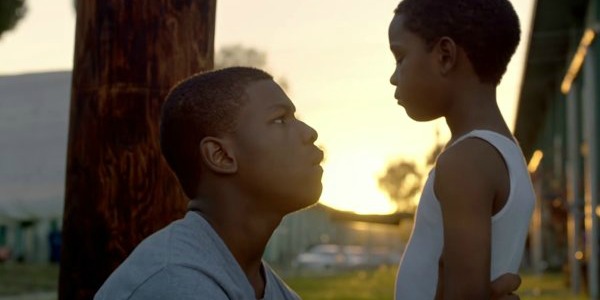IMPERIAL DREAMS: A Simple Film With Powerful Resonance

Graduate of New York University's Dramatic Writing program. Novelist, short…
It’s all too easy for a movie like Imperial Dreams to overdo it. Countless films before have inadvertently glorified the kind of gangster lifestyle that they are trying to condemn. There are parties, drugs, meaningless sex, and gun fetishism.
Under the direction of Malik Vitthal, though, Imperial Dreams is something else. It truly is a cautionary tale, though not without hope. And, more importantly, stark realism.
A Leading Man Without Ego
There can be no question that Imperial Dreams is a statement. Though kept shelved since its initial release in 2014, it can be no accident that the film is landing now courtesy of Netflix. With Beasts of No Nation, the streaming studio tackled a difficult reality that is often talked about and rarely understood from the ground level. They’ve done it again here.

Rather than the child soldiers of Africa, they’re allowing us a glimpse of the Los Angeles sidewalks, where gangster royalty and aggressive cops are at odds. Caught between them is Bambi, played by John Boyega, a recently released criminal determined to build a life for his young son, Day (played by both Ethan Coach and Justin Coach). Immediately upon his release, he’s set upon by his uncle (Glenn Plummer), who will pay big money for the safe transportation of drugs to Portland. This isn’t necessarily new territory for the genre, but Imperial Dreams manages to set itself apart with an atypical lead character and by giving itself time breathe.
It should be no surprise to anyone who has seen his other work that Boyega is stunning in this film. This is a new angle for the actor, though, a far cry from the constant charm of Finn, his reluctant stormtrooper in Star Wars: The Force Awakens. Bambi is more of a steadied thinker who takes pause to consider his surroundings and his options. Boyega fills those silences with the confident patience of a veteran actor, telling us more about his character than subtle tics ever could.
Bambi is a writer, and he has the personality to match. Even though we find out that he’s been in and out of jail since he was twelve, the street-tough alpha males around him seem to open up to him and spill their emotions. He’s a natural caretaker; his voice is quiet but tough, his face stoic in the face of danger. This balances itself out in scenes with his half-brother, Wayne (Rotimi), who has a more natural charisma as he struggles to pay for college and leave the dangerous city. The two actors have immediate chemistry.
The Usual Suspects
The story does hit a few tropes along the way. There’s the aggressive kingpin gangster, the well-meaning loser cousin, and the unrelenting police officer. But each is given time to play both good and evil without any unrealistic, jarring shifts. It’s quite a feat given the film’s scant 87-minute runtime.

At the film’s heart, though, is the straightforward relationship between Bambi and Day. Bambi never questions his responsibility as a young parent, and Day never questions his father’s love. Only the elements around them threaten to destroy their family. In this aspect, the social commentary boils just under the surface, never in-your-face enough to be distracting but always lingering.
Walk Two Worlds
When Bambi and Day visit Day’s mother in jail, we see the film’s ballsiest visual: the chicken-wire tops of the prison’s gates cut directly into a battered, almost transparent American flag. From here we can have no doubt about what this film is saying. Bambi applies for a job, but can’t get one due to his lack of a driver’s license. But he can’t get a driver’s license until he takes care of missed child support payments, which he can’t do without a job.
Here we see the criminal justice system taken to task as the entirety of the film seems to play out somewhere between prison and the outside world. Most indicative of this is the car in which Bambi and Day live for much of the film. Filled with spherical string lights, its windows covered with blankets, the interior of the dead vehicle is almost otherworldly.
It’s no surprise, then, that it is here where we hear most of Bambi’s writing, semi-fictional accounts of his violent childhood and the events that carried him into prison. The car is womb-like, a sanctuary from the frightening outside world, a facade that Bambi holds up to shield his son over the notes of a lullaby score. Outside the car, though, things are tough.

The film does not fear violence or brutality, but uses them wisely. Its tensest scenes, the most unnerving of which takes place when the illusion of the car’s safety is shattered, are far enough apart to be incredibly effective. For most of the film, we are watching Bambi wander through this lived-in world, trying to take his first steps toward a safer future and teetering on the edge of repeating past mistakes.
There’s a rumination here on the trappings of life. Bambi can’t fully shake his prison bars and the dark personality that landed him there lumbers forth at times despite his best efforts. Even Day feels it, as his obsession with horses signals a longing for escape and for a freedom outside of the city.
“This Is You Coming Home.”
Imperial Dreams is simple. It does not have the buzzing beats or flashing lights of most L.A. stories. Because of this, its characters feel real, its rooms feel soaked in memories best forgotten, and its payoffs are gripping. Its strength, in the end, rests in the choice of Vitthal and Boyega to let it walk assuredly at its own casual pace.
What do you think? Does the film’s slow pacing make it more effective than other films in the genre? Tell us in the comments bellow!
Imperial Dreams was originally released in the United States in 2014. It is now available in the US to stream on Netflix. No UK release date has been set.
https://www.youtube.com/watch?v=9drk9Ot5dX8
Does content like this matter to you?
Become a Member and support film journalism. Unlock access to all of Film Inquiry`s great articles. Join a community of like-minded readers who are passionate about cinema - get access to our private members Network, give back to independent filmmakers, and more.
Graduate of New York University's Dramatic Writing program. Novelist, short story writer, and podcaster. Batman and Star Wars nerd.












